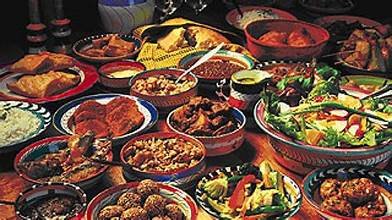Introduction:
In recent years, the culinary landscape of the United States has witnessed a remarkable transformation, with an increasing emphasis on diversity and inclusion. Among the myriad of global cuisines that have enriched American palates, African foods have emerged as a vibrant and integral part of the culinary tapestry. From traditional dishes rooted in centuries-old traditions to modern interpretations that celebrate the fusion of flavors, African foods play a significant role in shaping the gastronomic identity of the United States.
A Celebration of Diversity:
One of the most compelling aspects of African foods in the United States is their ability to celebrate diversity. Africa is a continent of immense cultural richness, boasting a mosaic of culinary traditions shaped by centuries of history, migration, and trade. From the spicy stews of West Africa to the aromatic tagines of North Africa and the savory injera of East Africa, each region offers a unique culinary heritage that reflects the diversity of its people and landscapes.
By embracing African foods, Americans have the opportunity to embark on a culinary journey that transcends borders and boundaries. Through the exploration of traditional recipes and ingredients, individuals can gain a deeper appreciation for the rich tapestry of African culture and heritage.
Promoting Health and Wellness:
Beyond their cultural significance, African foods also hold tremendous potential in promoting health and wellness in the United States. Many traditional African dishes are characterized by their use of fresh, locally sourced ingredients and minimal processing, making them inherently nutritious and wholesome.
For example, dishes like jollof rice, made with whole grains and a colorful array of vegetables, or maafe, a peanut-based stew rich in protein and healthy fats, offer a delicious and satisfying way to nourish the body. Additionally, African superfoods such as moringa, baobab, and fonio have gained popularity in health-conscious circles for their impressive nutritional profiles and potential health benefits.
Cultural Exchange and Connection:
The presence of African foods in the United States also serves as a catalyst for cultural exchange and connection. As African immigrants and their descendants share their culinary traditions with their American counterparts, they foster a deeper understanding and appreciation of African culture and heritage.
Food has a unique ability to transcend language and cultural barriers, serving as a universal language that brings people together. Whether through communal meals, cultural festivals, or cooking classes, the sharing of African foods creates opportunities for cross-cultural dialogue and connection, enriching the fabric of American society.
Conclusion:
In conclusion, the importance of African foods in the United States extends far beyond the realm of gastronomy. From celebrating diversity and promoting health and wellness to fostering cultural exchange and connection, African foods play a vital role in shaping the cultural landscape of the United States. As Americans continue to embrace the rich flavors and traditions of African cuisine, they not only expand their culinary horizons but also contribute to a more inclusive and interconnected society.

